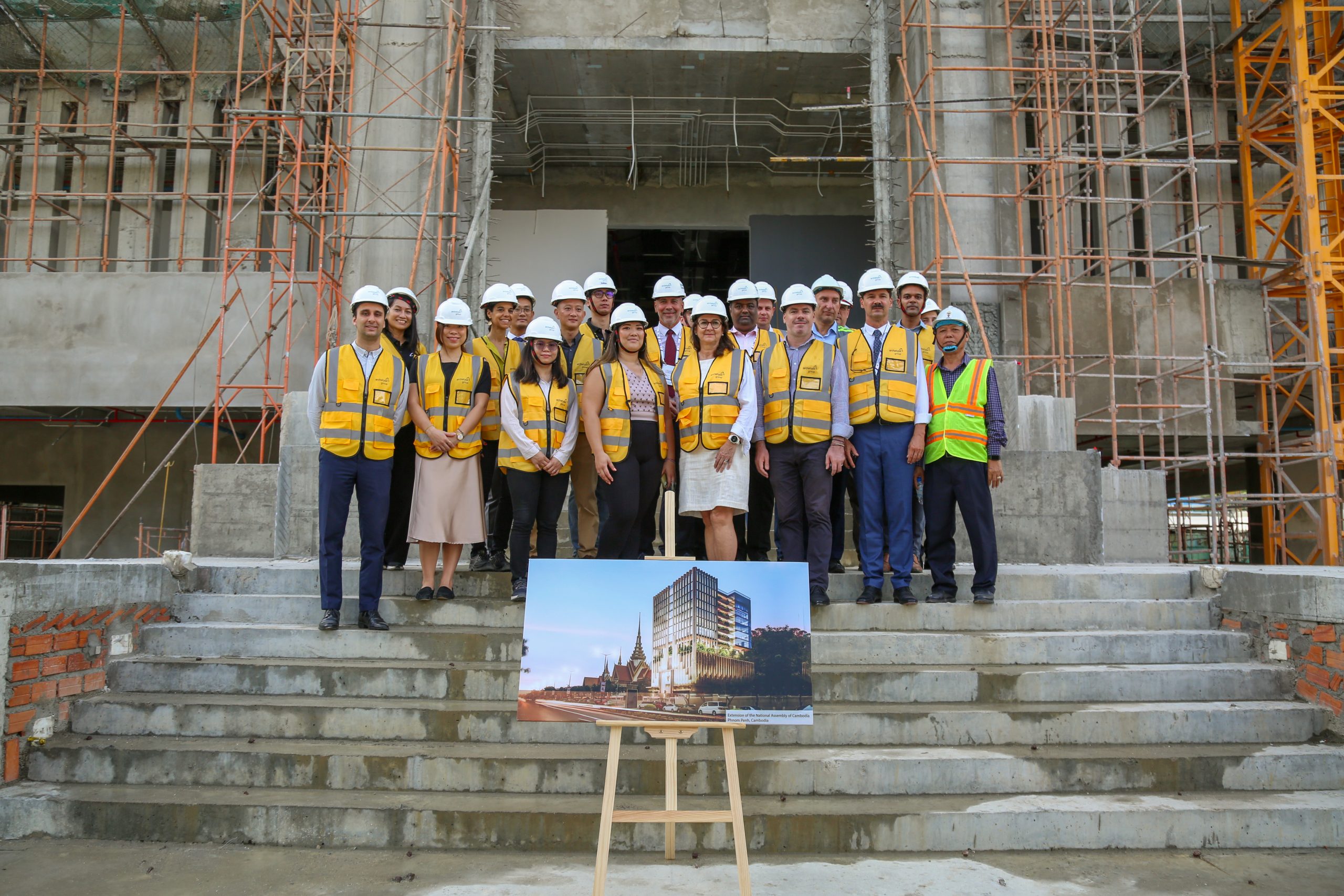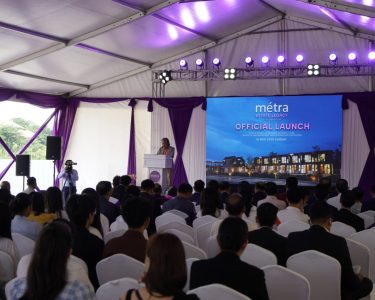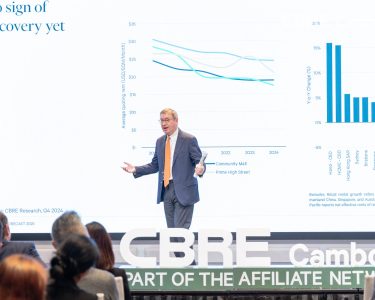Cambodia Investment Review
As part of the France-Cambodia Business Forum 2024, Archetype Cambodia, in collaboration with the National Assembly of Cambodia, hosted an exclusive site visit to showcase the New Administrative Building, a significant construction project. On July 9, 2024, H.E. Leng Peng Long, Secretary General of the National Assembly of Cambodia, and Michel Cassagnes, Regional Managing Director of Archetype Cambodia, Laos, and Vietnam, welcomed 20 French participants to the construction site.
Archetype Cambodia has built a reputation for delivering sustainable designs, costing, and project management services that comply with international standards and local regulations. With a team of 80 employees in Cambodia, the company has completed over 140 industrial, real estate, and hospitality projects. This firm is recognized for its innovation and significant contributions to the development of Cambodia.
Opportunities and Challenges for French Firms in Cambodia
Speaking to Cambodia Investment Review about the challenges and opportunities for French firms operating in Cambodia, Sara Duong, Business Development Manager at Archetype Cambodia highlighted several key points.
“Cambodia offers many advantages for the French business community, including rapid development driven by sectors like agriculture, manufacturing, construction, and tourism,” said Sara. “The competitive labor costs and participation in various free trade agreements also present significant opportunities.”
The spokesperson further noted that Cambodia’s emerging market, characterized by a young population and expanding middle class, drives demand across various sectors like retail and food & beverage. Additionally, the country’s strategic location within the ASEAN region provides access to a market of over 600 million people.
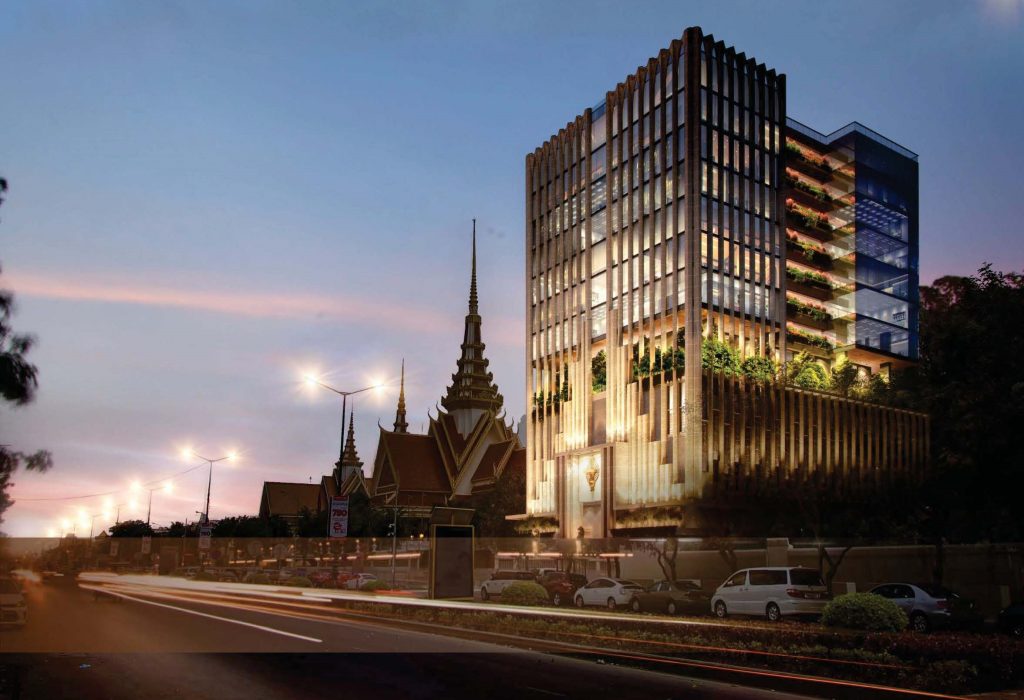
“The investor-friendly policies and a highly dollarized economy, supported by political stability, are also appealing,” Sara added. “Moreover, the strong historical relationship between France and Cambodia fosters a positive business environment.”
However, the spokesperson acknowledged that challenges persist. “Compared to neighboring countries like Vietnam and Thailand, Cambodia still appears as a limited market with 17 million people,” she said. “Issues such as corruption, lack of transparency in ongoing and future reforms, and the need for workforce training and development remain obstacles.”
Despite these challenges, the spokesperson emphasized that greater investment in infrastructure, a skilled workforce, a stable regulatory environment, and enhanced marketing will further boost the country’s appeal.
Regulatory Environment and Market Demand
The construction industry in Cambodia is undergoing significant changes. In 2019, the government introduced the Construction Law to regulate building permits, inspections, and penalties for non-compliance, aiming to ensure safety and quality standards. These changes, while beneficial in the long term, have led to delays and increased costs for current projects.
“The construction market demand, which previously experienced rapid growth until 2020, is now facing a slowdown due to rising costs of raw materials and logistical challenges,” said Sara. “A significant decrease and hesitation from foreign direct investment (FDI), especially from Asian countries like China, South Korea, and Japan, has also impacted the sector.”
In 2019, around 4,000 construction permits were delivered, totaling a value of $11 billion, a 35% increase compared to 2018 for buildings over 3,000 square meters. However, in 2022, this figure dropped to $3 billion, the worst year during the COVID-19 pandemic. The market showed signs of recovery in 2023, with $5.5 billion in permits.
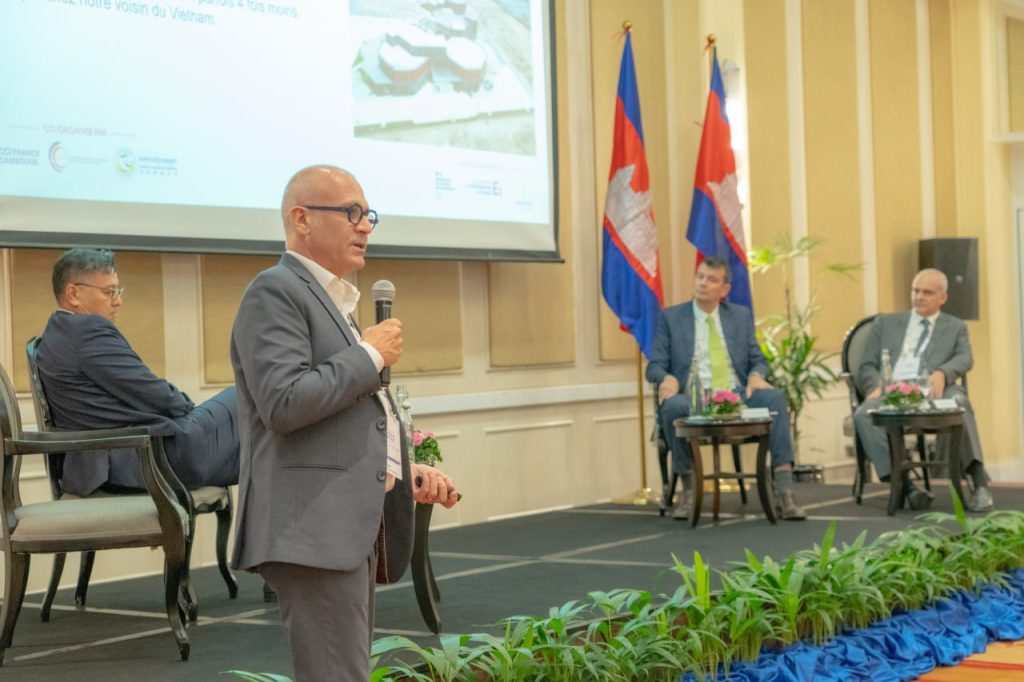
The government continues to prioritize essential infrastructure projects, maintaining baseline activity in the sector. Urban and industrial development in major cities like Phnom Penh and Sihanoukville also holds potential at a more measured pace. There is a growing focus on sustainable construction practices, which could attract new investments and drive innovation. For instance, the Royal Group Phnom Penh Special Economic Zone (RGPPSEZ) raised nearly $10 million from green bond issuance.
“Sustainability is becoming more important, although it’s still in the early stages compared to more developed markets,” said Sara. “There is a growing awareness of green building practices, energy efficiency, and the use of environmentally friendly materials. Some developers are starting to integrate these principles into their projects, thanks to regulatory incentives and rising demand from international investors and eco-conscious buyers.”
Future Trends in Cambodia’s Construction Sector
Cambodia’s construction sector is set for significant growth and transformation in the coming years. Technological advancements will play a pivotal role. Increased adoption of smart construction technologies, such as Building Information Modeling (BIM), is expected to enhance efficiency, accuracy, and collaboration during the design and construction phases. Drones and AI are also set to revolutionize the approach to design, costing, and construction, from site surveys to safety management.
Read More: Leader Talks – Cyril Girot On His Vision for Franco-Cambodian Business Synergy
Urban development in Cambodia is expected to accelerate, with a push towards sustainable and green building practices. The government and developers are already facing the challenges of global warming and will seek to balance rapid urbanization with environmental concerns. This includes integrating renewable energy sources, energy-efficient buildings, and eco-friendly materials.
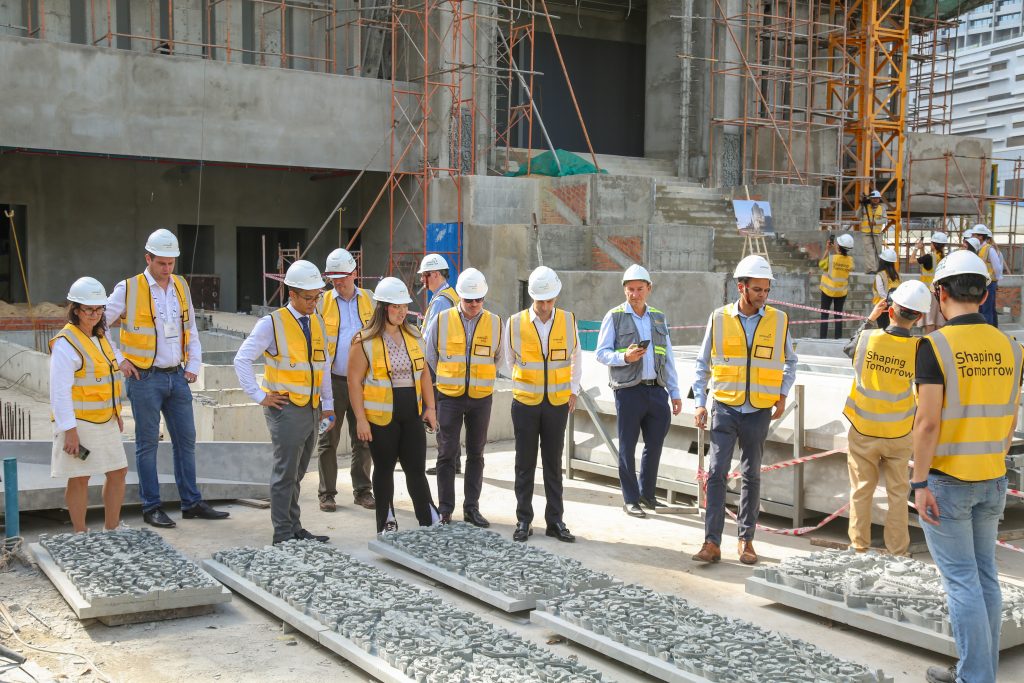
International investment, along with infrastructure development, will continue to be significant drivers. The Belt and Road Initiative (BRI) has already brought substantial Chinese investment into Cambodia, and this trend is expected to continue. Additionally, investors from South Korea, Japan, Indonesia, and Europe are increasingly looking at Cambodia as a viable market due to its strategic location and growing economy. This influx of international capital will likely lead to more high-quality, large-scale infrastructure and real estate projects.
Why French Companies Should Invest in Cambodia
There are several compelling reasons why French companies should consider investing in Cambodia. The country’s economic growth has been remarkable over the past decade, maintaining an average GDP growth rate of around 7%, among the highest in the region. This consistent growth indicates a stable and expanding market, attractive for foreign investors seeking long-term opportunities.
“Cambodia has a young and dynamic workforce, with a median age of just under 25 years,” Sara pointed out. “This demographic advantage is particularly beneficial for industries such as manufacturing, technology, and services.”
Additionally, Cambodia’s strategic location in the heart of Southeast Asia, bordering Thailand, Vietnam, and Laos, makes it an ideal hub for companies looking to access the broader ASEAN market. The country’s improving infrastructure, with investments in roads, ports, and airports, further enhances its connectivity within the region.
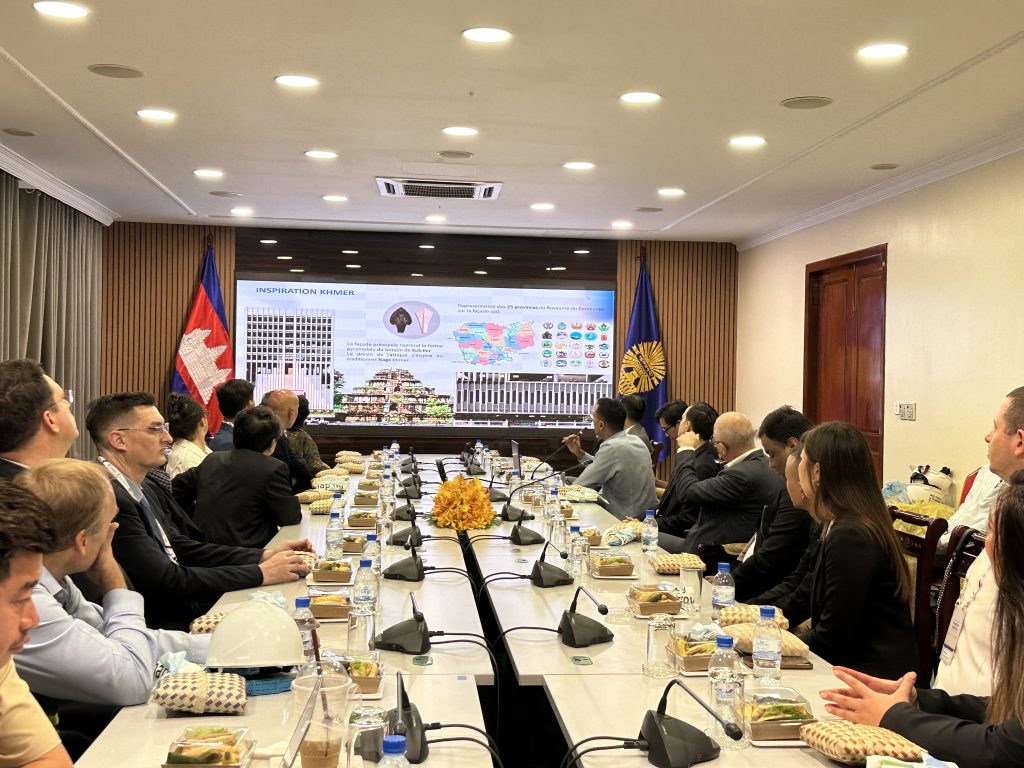
Cambodia also offers a favorable business environment, with the government implementing investor-friendly policies, including tax incentives, special economic zones, and streamlined procedures for business registration. These measures reduce bureaucratic hurdles, making it easier for foreign companies to establish and operate their businesses in the country.
“When comparing Cambodia to other Southeast Asian countries, the cost competitiveness is a significant advantage,” Sara added. “The cost of labor and land in Cambodia is relatively lower than in neighboring countries like Thailand and Vietnam, which can be crucial for companies seeking to optimize their operational expenses.”
In conclusion, Cambodia presents a combination of robust economic growth, a young and skilled workforce, strategic location, favorable business policies, and cost competitiveness. These factors collectively make it a highly attractive destination for French companies looking to expand their footprint in Southeast Asia.


